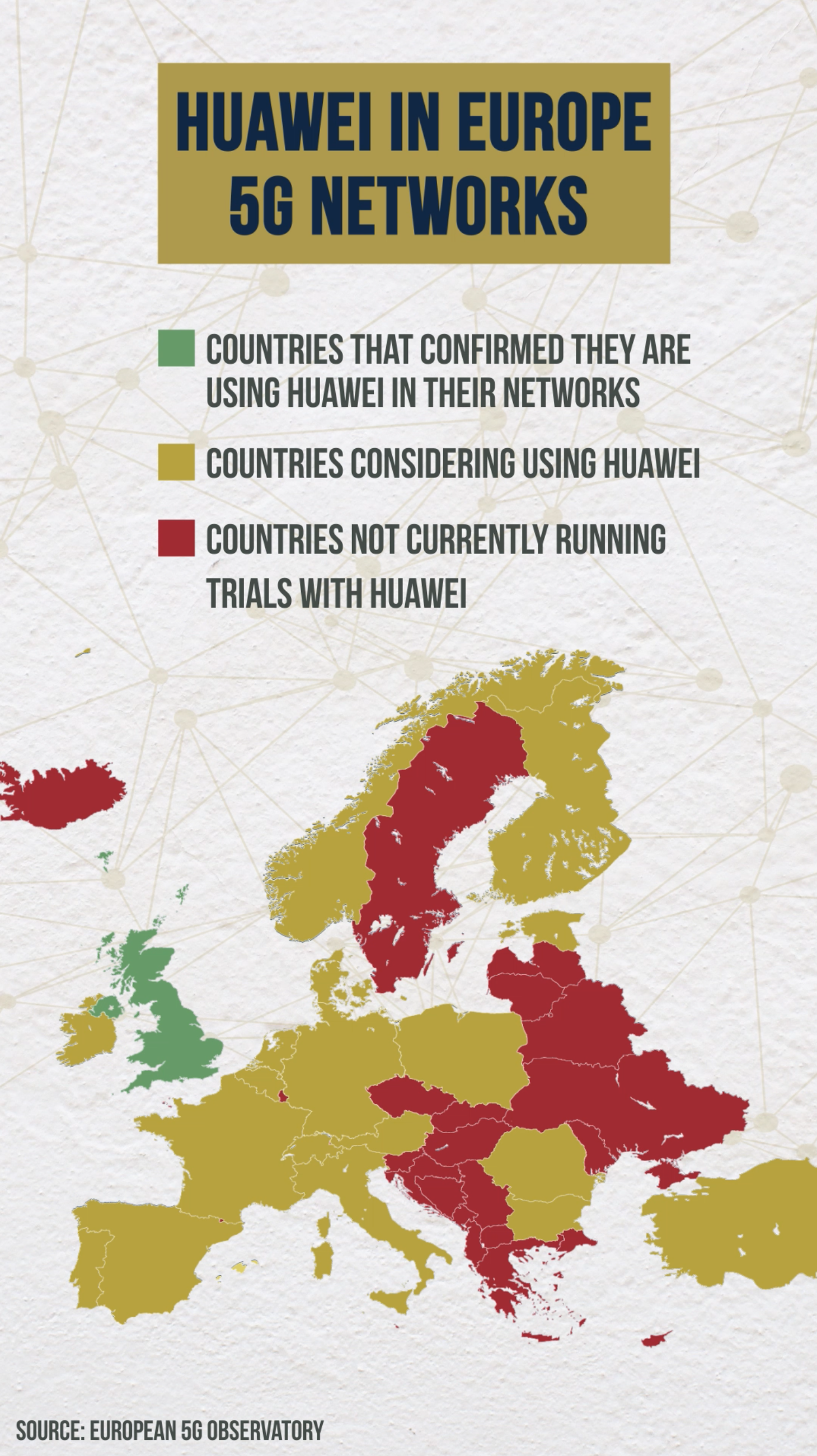00:24

The European Union has unveiled security guidelines for 5G wireless networks that stop short of banning Huawei, in the latest setback for the U.S. campaign against the Chinese tech company.
The European Commission outlined a set of strategic and technical measures aimed at reducing cybersecurity risks from fifth-generation, or 5G, mobile networks. The recommendations include blocking high-risk equipment suppliers from "critical and sensitive" parts of the network, including the core, which keeps track of data and authenticates smartphones on the network.
The guidelines will leave a lot of room for member states to make their own decisions on what companies they consider "high risk."

5G is set to revolutionize digital networks (Credit: Manu Fernandez/AP)
5G is set to revolutionize digital networks (Credit: Manu Fernandez/AP)
No companies were mentioned by name but the term "high-risk" supplier could be a reference to Huawei, the world's top maker of networking equipment such as switches and antennas.
The U.S. Department of Commerce blacklisted Huawei last May. Lobbying its European allies to ban Huawei, the U.S. government has repeatedly warned that it would have to reconsider intelligence-sharing with countries who work with the company.
Huawei has repeatedly denied allegations that it poses a danger to countries it invests in and partners with.
The advice comes one day after the British government approved a restricted role for Huawei in building the country's 5G network.
European leaders have previously said that building 5G network could be costlier and slower without Huawei equipment, while telecoms companies - including the UK's BT and Vodafone - have backed Huawei's involvement.
Huawei founder Ren Zhengfei told the World Economic Forum in Davos last week that while he expects the antipathy from Washington to continue, the company will continue to grow as it had poured "hundreds of billions" into contingency plans.

Ren Zhengfei founded Huawei in 1987 (Credit: Ng Han Guan/AP)
Ren Zhengfei founded Huawei in 1987 (Credit: Ng Han Guan/AP)
Analysis: From Lucy Hough in Brussels
Who are the EU referring to as 'high-risk suppliers'?
The Commission's guidelines don't mention any specific country or company directly, but Huawei is the vendor who has generated the most international concern on issues of cybersecurity.
The measures broadly mimic the UK's strategy, which has listed both Huawei and ZTE as 'high-risk.'
In its role as a 5G supplier, Huawei will be competing with Sweden's Ericsson and Finland's Nokia but the EU is urging diversification to stop European telecoms companies from becoming too reliant on those firms.
What does this mean for Huawei?
Huawei has welcomed this decision from the EU, which has stopped short of an outright ban despite intensive lobbying from the US.
The firm has long denied that it poses a security threat – the firm's founder has even said he'd rather "shut the company down" than aid any "spying activities.”
Remember to sign up to Global Business Daily here to get our top headlines direct to your inbox every weekday
Source(s): AP